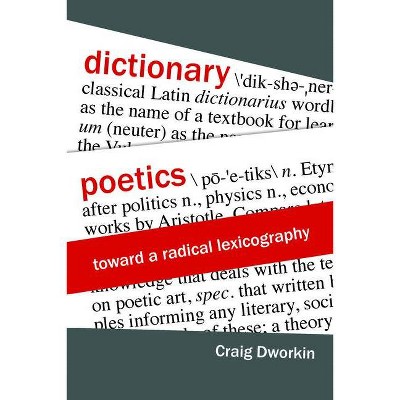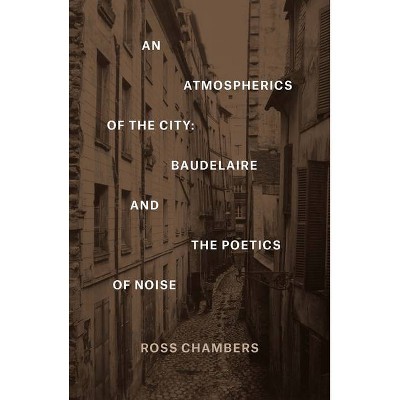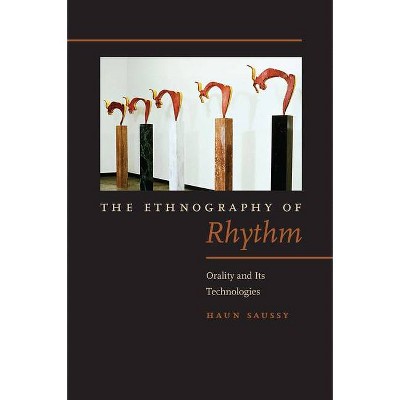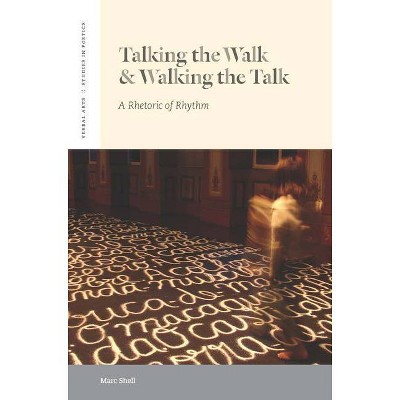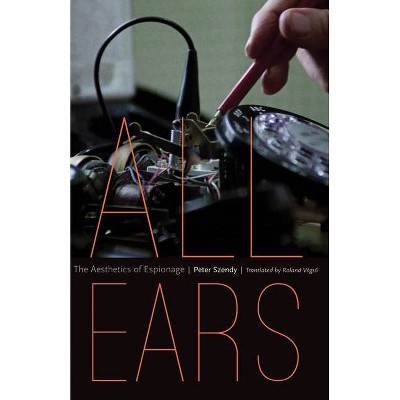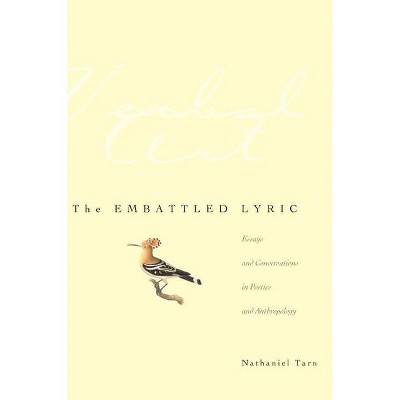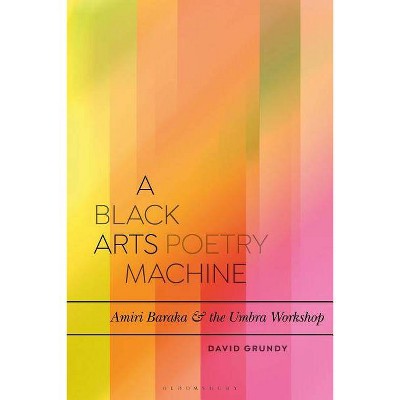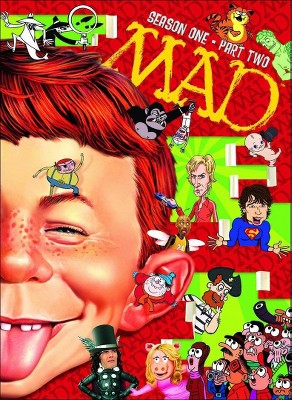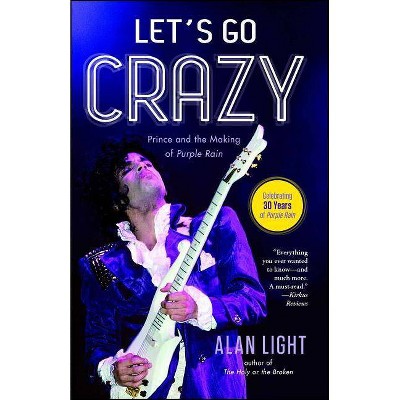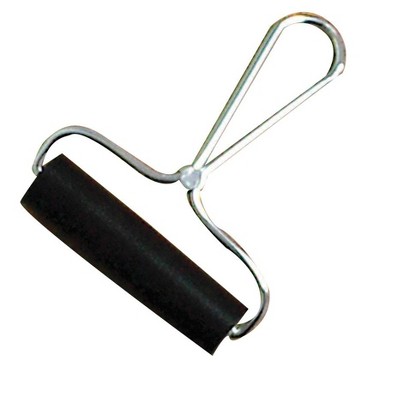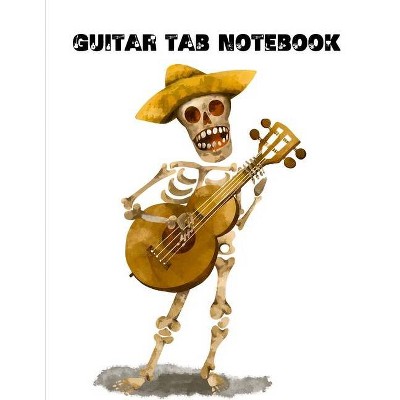Of Stigmatology - (Verbal Arts: Studies in Poetics) by Peter Szendy (Hardcover)
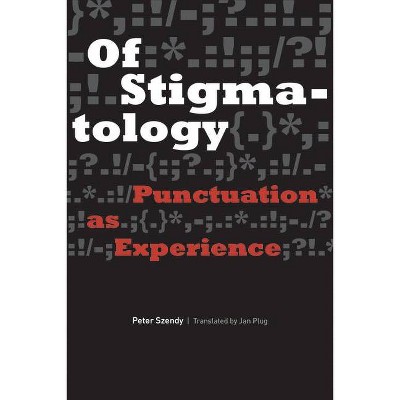
Similar Products
Products of same category from the store
Product info
<p/><br></br><p><b> Book Synopsis </b></p></br></br><p>What if our existence is a product of its interruptions? What if the words that structure our lives are themselves governed by the periods and commas that bring them to a close, or our images by the cinematic cuts that mark them off? Are we, like Chekhov's clerk, who dreams of being pursued by angry exclamation marks, or Scorsese's Jake LaMotta, bloodied by one violently edited fight after another, the products of punctuation--or as Peter Szendy asks us to think of it, <i>punchuation</i>? <p/>Of Stigmatology elaborates for the first time a general theory of punctuation. Beginning with punctuation marks in the common sense, Peter Szendy goes on to trace the effects of punctuation more broadly, arguing that looking and hearing are not passive acts of reception, but themselves punctuate the images and sounds they take in. Szendy reads an astonishing range of texts and traditions, from medical auscultation to literature (Chekhov, Sterne, Kafka), philosophy (Hegel, Nietzsche, Heidegger, Derrida), psychoanalysis (Lacan), and film (Raging Bull, The Trial, Fight Club). <p/>Repeatedly, what Szendy finds in these works is a punctuation that marks experience itself, that seeks (and ultimately fails) to bind the subject to itself. This is the stigmatology of the punctuation mark on the page that structures texts from ancient to digital, as well as the punchuation of experience, as though at the hands of a boxer.</p><p/><br></br><p><b> Review Quotes </b></p></br></br><br><i>Of Stigmatology</i> is provocative and eye-opening.-- "Choice"<br><br>Peter Szendy's brilliant reflections on the punctuation of experience make for a magnificent composition: a new philosophy of the sensible focused on how one feels oneself feeling, and an investigation of 'how one makes a point' philosophically and emotively. Never before have exclamation points, dashes, interrogatives, full stops, and quotation marks been treated so existentially; never before has the musicality of existence been so keenly tied to its notation; never before has the distance between points been used so effectively as a measure of life-span. In the "pows!" and "blams" of comic-book blows, glimmers of political violence come into focus. This is an amazing work of philosophy, aesthetics, media, and critique!!!<b>-----Emily Apter, <i>New York University</i></b><br><br>To the now of the point, Heidegger opposes the ecstasy of time. For the past of the point, Deleuze substitutes becoming without history. Both, Peter Szendy objects, are but different ways of punctuating. Cuts, blows, silences, blanks: these stigmata are all irreducible, as are punctuation marks in a text. From ontology to linguistics, from learned treatise to comic book, the grace of this fascinating text brings being back to the infinity of its cut.<b>-----Catherine Malabou, <i>Kingston University</i></b><br><p/><br></br><p><b> About the Author </b></p></br></br><b>Peter Szendy (Author) </b><br> <b>Peter Szendy </b>is David Herlihy Professor of Humanities and Comparative Literature at Brown University and musicological advisor for the concert programs at the Paris Philharmony. He has taught in the Philosophy Department at the University of Paris Nanterre and as Visiting Professor in Princeton and NYU. He has been the senior editor of the journal and book series published by Ircam. He is the author of: <i>Of Stigmatology: Punctuation as Experience </i>(Fordham University Press, 2018); <i>All Ears: The Aesthetics of Espionage </i>(Fordham University Press, 2016); <i>Phantom Limbs: On Musical Bodies </i>(Fordham University Press, 2015); <i>Apocalypse-Cinema: 2012 and Other Ends of the World </i>(with a foreword by Samuel Weber, Fordham University Press, 2015); <i>Kant in the Land of Extraterrestrials: Cosmopolitical Philosofictions </i>(Fordham University Press, 2013); <i>Hits: Philosophy in the Jukebox </i>(Fordham University Press, 2012);<i> Prophecies of Leviathan: Reading Past Melville </i>(Fordham University Press, 2009);<i> </i><i>Listen: A History of Our Ears </i>(with a foreword by Jean-Luc Nancy, Fordham University Press, 2007). <p/><b>Jan Plug (Translator) </b><br> Jan Plug is Professor of English at the University of Western Ontario. <p/>
Price History
Cheapest price in the interval: 72 on November 8, 2021
Most expensive price in the interval: 72 on December 20, 2021
Price Archive shows prices from various stores, lets you see history and find the cheapest. There is no actual sale on the website. For all support, inquiry and suggestion messages communication@pricearchive.us
